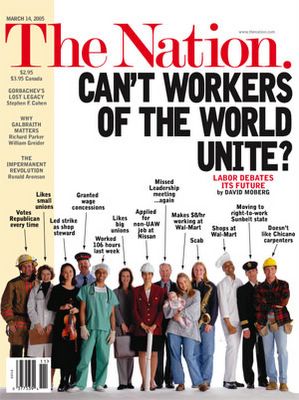More money for school dinners
Travelling down to London today. Jamie Oliver is on the front of a few of the papers following his meeting yesterday with Tony Blair, and the subsequent announcement by Education Secretary Ruth Kelly that the government will commit another £220m to imrpove the quality of school dinners. You can read more here
I think unions could learn a few lessons from this campaign - which managed to get over a quarter of a million people to sign an on-line petition, and tapped into an issue which obviously had a real resonance with parents, school meals workers and the wider public. Celebrity endorsement was one factor of course but I think the most important factor was that the campaign focussed on a real issue that mattered to real people. It showed what privatisation and outsourcing are doing to our public services in a way which a lot of union campaigning has perhaps failed to do. At the heart of the problem around school meals is the fact that this service has been outsourced and exposed to competition - effectively meaning that private companies make more profit by providing cheaper (and hence poorer quality) meals.
An extra £220m is a good start - let's hope it actually goes toward putting better meals on our kids plates, rather than increased profits for the privatised meals providers...





